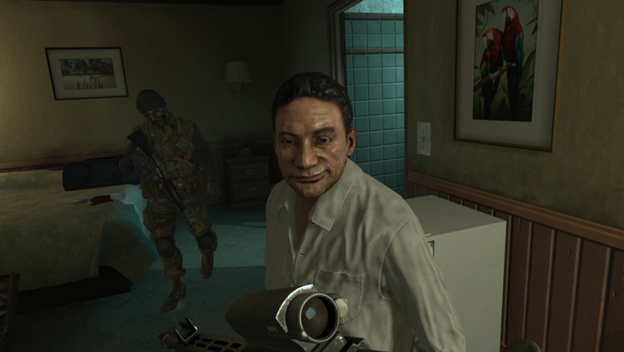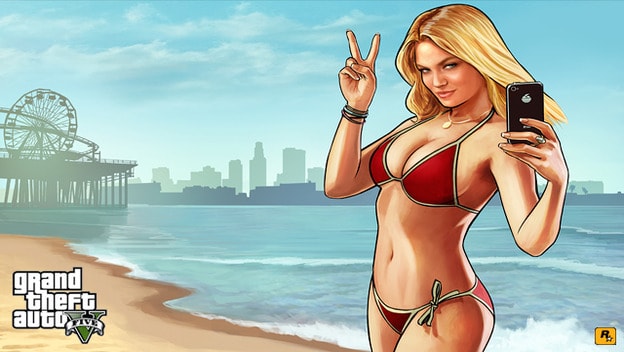Recently, there has been a bit of legal conflict concerning the use of “celebrity” likenesses in video games. Perhaps the biggest the biggest one in the news right now is Lindsay Lohan’s lawsuit against Rockstar for Grand Theft Auto V . She claims that one of the promotional characters for the game, a girl on a beach in a bikini taking a selfie, is a direct reference to Lohan herself. The character’s name is Lacey Jonas, a anorexic actress who contracts you to help her dodge paparazzi. Lohan argues that the character was inspired by a character that she played in Mean Girls.
On the whole other end of the “celebrity” spectrum, Panamanian dictator Manuel Noriega has sued Activision over Call of Duty: Black Ops II . For those of you who remember the game, Noriega was used as a character. Noriega has sued Activision for “blatant misuse, unlawful exploitation, and misappropriation for economic gain.” Activision, on the other hand, says that the use of Noriega’s likeness is “transformative” and that it is protected under the First Amendment. It also argues that Noriega is, essentially, a historical figure, and that if historical figures were not allowed to be the subject of creative works, then the surviving family members or estates of some of the most influential figures of our time could sue game developers for including any prominent historical figure in their fiction. Essentially, game stories could not be tied to history anymore without threat of legal recourse.
Use of celebrity likeness is, unfortunately, a bit of a sticky grey area, but not just for video games. TV Shows, Movies, heck even Books have been the subject of using a person’s likeness without their permission. Yes, you can’t even write about someone without possible legal recourse.
However, that’s what our fair use laws are for. People are supposed to be protected if they are using someone’s likeness as commentary, satire, parody, educational purposes, and a couple other instances boiling down to whether or not a proposed work could exist without the supposedly “copied” thing. Essentially, the idea is that you are prohibited from “copying” (hence copyright) a work and simply profiting off of it, but not prohibited from using or discussing a work and profiting off it. For example, if you made a movie and simply put a Linkin Park song into the soundtrack, you are copying the song and using it without permission, however if you made a movie that was reviewing the very same song, it’s both educational and commentary and could not exist without the song itself, thus (hopefully) qualifying it for fair use.
But the use of likenesses kind of muddy the waters a bit. We have to ask ourselves, could Call of Duty: Black Ops be made without Noriega. Many people would say no. Could GTA V be made without Lacey Jonas however? Many would say yes. However, is Lacey Jonas parody? Is it any different than the portrayals of celebrities we see in South Park or Family Guy ? If Lacey Jonas was named something like “Blindsey Blohan” would it be more problematic?

So what are our options here? Do we stop using likenesses all together? Do we use likenesses and face the legal ramifications? What is best for the gaming industry? Let us know what you think in the comments.
